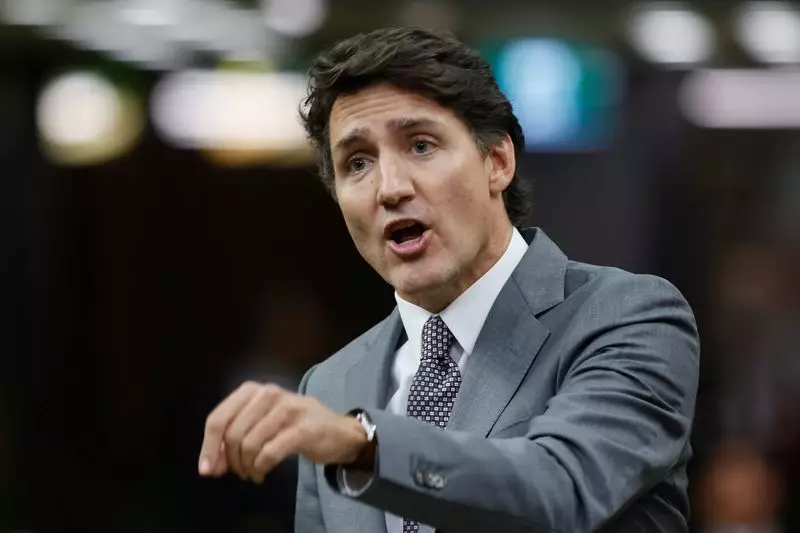In the realm of Canadian politics, the landscape has shifted dramatically, leaving Prime Minister Justin Trudeau and his Liberal Party grappling with significant challenges. Recent polls indicate a worrisome trend for the Liberals, who once held the majority with relative ease but are now trailing significantly behind the Conservative Party, led by Pierre Poilievre. The upcoming special election in LaSalle—Emard—Verdun poses a critical test for the Liberals; a loss could catalyze intense scrutiny of Trudeau’s leadership and might prompt calls for a change at the helm.
The Liberal Party’s traditional stronghold is now under threat. Historically, the Montreal constituency has been a secure seat for them, but the latest indications suggest that it could turn into a battleground in the run-up to the federal election scheduled for late 2025. Trudeau’s party has increasingly become a target of voter dissatisfaction, and a poor showing in the elections could amplify internal party dissent.
The environment within the Liberal Party has become fraught with tension, as some of its own members publicly express discontent with Trudeau’s leadership. In a striking move, Alexandra Mendes, a Quebec MP, vocalized the sentiments of her constituents, underscoring that many have outright called for Trudeau to step down. “I didn’t hear it from two, three people — I heard it from dozens and dozens of people,” Mendes remarked during an interview, indicating that the frustration is widespread. This kind of dissent from within the ranks can destabilize a governing party, provoking discussions about potential leadership changes.
Trudeau, in defiance of the rising discontent, has asserted his intention to lead the party through the next scheduled election, seemingly unfazed by the growing chorus of calls for a new leader. He has pointed to the anger over inflation and the ongoing housing crisis as factors that might galvanize voters toward the Liberals. However, this rationale appears increasingly tenuous as Canadians confront escalating living costs and housing affordability issues.
Adding to Trudeau’s woes is the fallout from previous elections, notably a recent loss in a Toronto constituency that was once considered a bastion for the Liberals. This defeat has raised questions about the party’s ability to connect with voters who feel betrayed by broken promises — one notable example being Trudeau’s failure to reform Canada’s voting system as promised back in 2015. Such broken commitments serve as not only a political setback but a liability that can fuel voter frustration and pave the way for a shift in allegiance towards rival parties.
Current polling data shows Conservatives enjoying unprecedented popularity, with one recent poll placing them at 45% support. The Liberals’ position at 25% starkly illustrates this dramatic shift. The implications for the upcoming election are grave for Trudeau if the current trends continue.
The trove of issues plaguing the Canadian public — high living costs and a burgeoning housing crisis—serve as crucial talking points in the electoral landscape. Many attribute the rise in living expenses and housing shortages to an influx of temporary residents, including foreign students and workers. Poilievre has seized on these themes, offering promises to repeal the federal carbon tax, which he claims exacerbates the affordability crisis, and proposing to limit immigration temporarily until housing development catches up.
The Liberals, keenly aware of the grim polling forecasts, acknowledge the necessity to reshape the narrative. They plan to position Poilievre as aligned with far-right ideologies reminiscent of former U.S. President Donald Trump, in hopes of alienating centrist voters. However, this strategy raises doubts about its effectiveness, especially in a political climate that is rapidly evolving.
As the special election approaches, the stakes could not be higher for the Liberals. The outcome will likely resonate beyond the local constituency, shaping party dynamics and leadership discussions in the wake of a potential loss. Trudeau’s leadership faces critical ramifications if he cannot leverage his party’s historical foothold in Quebec to garner support amidst roaring discontent. The interplay of public sentiment, party unity, and electoral strategy may well define the future trajectory of the Liberal Party in Canadian politics.

